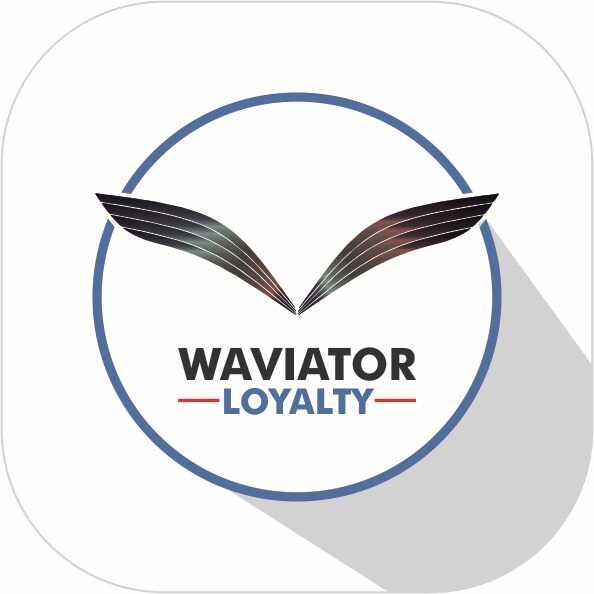Yes, most modern loyalty management systems may be accessed from a variety of devices and platforms. Customers can simply join and participate in reward programs using their smartphones, tablets, or computers, independent of the operating system or browser they use. Furthermore, businesses can access and administer their loyalty program from any device, making it more easy and efficient for everyone involved.
List of Best Loyalty Management System
Loyalty Reward Stamp - a game-changing mobile app that transforms outdated paper punch cards into a secure and trackable digital rewards system. Elevate customer loyalty by providing easy access to mobile deals and enticing social media incentives. I...Read More Loyalty Reward Stamp
LoyaltyXpert is the industry-leading SaaS platform designed to simplify and streamline your digital channel engagement and loyalty programs. Say farewell to complications and welcome a seamless solution for managing sales and loyalty programs. Count...Read More LoyaltyXpert
Glue Loyalty - an innovative loyalty program designed to enhance customer retention and strengthen brand-consumer relationships. With personalized incentives, seamless integration, and comprehensive data analysis, Glue Loyalty empowers businesses to...Read More Glue Loyalty
Waviator Loyalty is a loyalty management tool for businesses looking to cultivate lasting customer connections. With customizable promotions, data analytics, targeted customer segmentation, and streamlined incentive program management, Waviator Loyal...Read More Waviator Loyalty
KlikNGo is a loyalty program and CRM software for businesses of all sizes and industries. With KlikNGo, you can easily keep your customers engaged and build their loyalty through various rewards. Its a robust platform that simplifies customer managem...Read More KlikNGo
Elevate your customer retention and engagement with bLoyal is a loyalty and rewards platform. Our customizable emails, text promotions, and seamless integrations make it solution for businesses of all sizes. Trusted by countless satisfied users, bLoy...Read More bLoyal
Loymark Kenuu - a prominent software company that specializes in delivering cutting-edge Digital Transformation solutions. Our skilled team collaborates closely with clients to comprehend their technology needs and deliver streamlined solutions with...Read More Loymark Kenuu
Annex Cloud is a loyalty platform tailored for enterprises. Our cutting-edge technology allows for seamless customer interactions, hassle-free integrations, and continuous advancements to drive growth and cultivate customer loyalty on a global scale...Read More Annex Cloud
Notificare is a software that enhances customer engagement by delivering personalized notifications. With its ability to integrate across various channels such as mobile, web, email, and social media, it facilitates timely and targeted communication...Read More Notificare
SaaSquatch is solution for businesses looking to tap into the power of customer referrals. Our advanced javascript widget and seamless integration with subscription services makes tracking and rewarding referrals effortless. Say goodbye to complicate...Read More SaaSquatch
Voucherify - a, cloud-based platform designed to manage loyalty and promotions with an API-oriented approach. Our solution enables seamless distribution across multiple channels and provides robust tracking and analytics tools for all your promotiona...Read More Voucherify
Findjoo is a hassle-free membership management system that streamlines online transactions, event registrations, and email outreach. Seamlessly integrated with QuickBooks, it enables organizations to efficiently manage administrative duties and enhan...Read More Findjoo
Olabi - a cloud-based SaaS platform that takes retail operations to the next level with its advanced POS, WHM, and loyalty program features. With its comprehensive omnichannel retail capabilities, Olabi empowers businesses to stay ahead of the compet...Read More Olabi
AiTrillion is solution for timely customer engagement. With its advanced automation features and versatile chatbot, it simplifies tasks for your team. Swiftly connect with customers through emails, text messages, and in-app notifications. Say farewel...Read More AiTrillion
Zinrelo is a loyalty rewards platform designed for businesses. Elevate your customer experience with personalized rewards programs, supported by enterprise-grade features. Achieve an impressive 80% increase in repeat sales, boost profitability by 50%...Read More Zinrelo
Synerise is an advanced AI-driven platform that harnesses real-time data to deliver invaluable insights on market opportunities, growth potential, and process efficiency. With its all-encompassing view of customers, Synerise empowers businesses with...Read More Synerise
Fivestars software revolutionizes business rewards programs by seamlessly connecting merchants with customers for easy customer acquisition, increased loyalty, and effective local marketing strategies. With Fivestars versatile loyalty software, enhan...Read More Fivestars
Preferred Patron Loyalty is a loyalty management software ideal for businesses of all sizes. It includes a variety of features such as a gift card system, CRM, membership portal, referral tracking, and loyalty card system. With four editions - bronze...Read More Preferred Patron Loyalty
Learn More About Loyalty Management System
- What Is Loyalty Management System?
- What Are The Recent Trends In Loyalty Management System?
- Benefits Of Using Loyalty Management System
- Important Factors To Consider While Purchasing Loyalty Management System?
- What Are The Key Features To Look For In Loyalty Management System?
- Why Do Businesses Need Loyalty Management System?
- How Much Time Is Required To Implement Loyalty Management System?
- What Is The Level Of Customization Available In Loyalty Management System?
- Which Industries Can Benefit The Most From Loyalty Management System?
- Conclusion
What Is Loyalty Management System?
A loyalty management system is a software platform that allows businesses to build and maintain strong customer relationships. It is a comprehensive platform that enables organizations to reward customers for loyalty, track their behavior, and ultimately boost customer retention and satisfaction. At its core, a loyalty management system allows businesses to collect and analyze data on their customers' behavior, such as purchase history, demographics, and interactions with the company.
This data is then used to create targeted and personalized loyalty programs that encourage customers to continue interacting with the company. One of the key benefits of using a loyalty management system is the ability to track customer activity and reward them accordingly. Companies can utilize loyalty programs to offer exclusive discounts, promotions, and other perks to their most loyal customers.
This not only shows respect and value to these customers, but it also encourages them to continue doing business with the company, resulting in increased sales and revenue. Furthermore, a loyalty management system allows businesses to segment their customer base and create distinct loyalty programs for different groups. This enables firms to adapt to their customers' individual needs and preferences, increasing their chances of gaining a loyal clientele.
A loyalty management system not only encourages client loyalty and retention, but it also provides valuable insights and analytics about customer behavior. This information can help businesses make more informed decisions regarding their marketing approach, product offerings, and customer experience, resulting in increased corporate growth.
Overall, a loyalty management system is an essential tool for modern businesses that value their customers and wish to establish long-term relationships with them. It not only helps you retain existing customers but also attracts new ones through word-of-mouth referrals and exceptional customer service. A loyalty management system can help businesses obtain a competitive edge and achieve long-term success.
What Are The Recent Trends In Loyalty Management System?
Loyalty management systems have evolved dramatically in recent years, responding to changes in consumer behavior and technology. Loyalty management systems have emerged as a critical tool for organizations seeking to retain and engage their customers.
We'll look at the latest trends in loyalty management systems to help you make an informed decision about which system is best for your business.
1. Personalization: With so much data available, firms can now tailor loyalty programs to a whole new level. This includes personalized offers, prizes, and messages based on customers' specific interests and actions. This tendency improves not only the consumer experience, but also the effectiveness of reward programs.
2. Mobile Optimization: The increase in mobile usage has had an influence on loyalty management systems. Customers now demand loyalty programs to be mobile-friendly, allowing for rapid access and redemption of rewards. As a result, many firms are implementing mobile capabilities into their loyalty management systems to remain competitive.
3. Integration With Other Systems: Loyalty management systems are no longer stand-alone applications. They are now being connected with other systems, including customer relationship management (CRM) and point-of-sale (POS), to provide a more seamless experience for both customers and enterprises.
4. Gamification: Gamification aspects such as points, badges, and challenges are becoming increasingly popular in loyalty management systems. This not only makes shopping more enjoyable for customers, but it also boosts engagement and repeat sales.
5. Social Media Integration: As social media's importance grows, loyalty management systems are becoming more integrated with prominent social media platforms. This allows firms to reach a larger audience and promote loyalty programs via social media channels.
6. Data Analytics: Modern loyalty management systems have extensive data analytics capabilities, which provide firms with important insights into consumer behavior, preferences, and trends. This enables the establishment of targeted and effective loyalty programs.
7. Multi-Tiered Programs: Another popular feature in loyalty management systems is the inclusion of multi-tiered programs. This enables businesses to reward consumers according on their loyalty level, offering incentives for them to advance to the next tier and remain involved with the program.
Benefits Of Using Loyalty Management System
A loyalty management system is a strong tool that may help organizations retain consumers, improve income, and develop long-term connections with their clients. It is a software platform that allows businesses to motivate and reward customers for their loyalty and involvement with the brand.
Here are some major advantages of adopting a loyalty management system:
1. Increased Customer Retention: With a loyalty management system, organizations can offer individualized and meaningful rewards and incentives to their clients. This fosters recurring purchases while also making customers feel cherished and appreciated. As a result, businesses see improved client retention rates, which leads to increased lifetime value and lower customer acquisition expenses.
2. Increased Customer Engagement: A loyalty management system enables organizations to gather and analyze useful information about their customers' behavior, purchasing habits, and preferences. This data may then be utilized to build targeted marketing campaigns and personalised offers, which can greatly boost consumer engagement and retention.
3. Increased Sales And Revenue: By rewarding customers for their loyalty, firms can encourage them to spend more money and make more purchases. This can lead to higher sales and revenue since loyal customers are more likely to spend in a brand they believe in and appreciate.
4. Useful Insights And Analytics: A loyalty management system offers firms real-time data and analytics on customer behaviour and trends. This data can help organizations make more educated decisions about marketing strategy and product offerings, resulting in higher consumer satisfaction and sales.
5. Competitive Advantage: In today's market, where customers have numerous options, firms must stand out and separate themselves from competition. Having a loyalty management system in place can provide a competitive advantage by allowing businesses to offer unique and appealing rewards and incentives to their customers.
6. Budget-Friendly Marketing: Traditional marketing tactics can be expensive, especially when targeting new clients. A loyalty management system is a cost-effective technique to sell to existing consumers because they are already involved in the brand, and the incentives provided are less expensive than gaining new clients.
Important Factors To Consider While Purchasing Loyalty Management System?
When purchasing a Loyalty Management System (LMS), numerous elements must be considered in order to make an informed decision.
Here are some crucial aspects to consider when selecting an LMS for your business:
1. Business Needs: Your business's needs should be the first and most important consideration. Examine your loyalty program objectives, the features and functionalities you need, and how the LMS can fit into your overall business strategy.
2. Customization And Scalability: Each business has distinct requirements, and a decent LMS should allow you to tailor loyalty programs to your brand's identity. Furthermore, the system should be able to scale and support your company's growth and changing requirements.
3. Integration Capabilities: A reputable LMS should be able to interact smoothly with your existing systems, including CRM, POS, and e-commerce platforms. This will help to streamline your reward program and provide a more seamless experience for your customers.
4. Data Management: An effective LMS should be able to collect and organize consumer data, including as purchase history, preferences, and behavior. This information can then be used to create efficient loyalty campaigns and personalised rewards for customers.
5. User-Friendly Interface: The LMS should have a simple interface that is easy to use for both your team and clients. A sophisticated system might cause confusion, errors, and delays in implementing loyalty programs.
6. Assistance And Training: Look for a vendor who offers continuing assistance and training to ensure that you and your team have the necessary knowledge and abilities to use the LMS effectively. This will also assist troubleshoot any future concerns.
7. Security And Compliance: Because an LMS will handle client data, it is critical that the system is safe and complies with requirements like as GDPR and CCPA. This will safeguard both your company and your clients' sensitive data.
8. Pricing And ROI: Think about the cost of the LMS and the return on investment it can offer. A more expensive system may have more advanced capabilities, but it should be in line with the expected ROI for your organization. By taking these crucial elements into account, you can make an informed decision when choosing an LMS that best meets your company's needs and helps you establish a loyal client base. Evaluate and compare numerous possibilities before making a final decision to ensure that you are making the best investment for your company.
What Are The Key Features To Look For In Loyalty Management System?
When looking for a Loyalty Management System (LMS), you should examine essential elements that will assist streamline your loyalty program and increase client retention.
Here are the key features you should look for while selecting an LMS:
1. Customization And Flexibility: A decent LMS should allow you to tailor loyalty programs to your company's specific needs. This includes the ability to specify different awards, tiers, and expiration dates for your loyalty program. Look for an LMS that allows you to customize your programs and integrate them with other applications and systems.
2. Data Collection And Analysis: Data is essential for understanding your customers and their behaviors. Look for an LMS that collects and analyzes consumer data to gain insights into their preferences and purchasing habits. This will allow you to personalize your loyalty program and increase its effectiveness.
3. Multi-Channel Support: Customers often connect with businesses through multiple channels, including online, in-store, and mobile. An efficient LMS should have numerous channels for tracking and rewarding consumer action wherever it occurs. This ensures that your customers have a seamless and consistent experience.
4. User-Friendly Interface: Your LMS should have an intuitive interface for both customers and administrators. This features a simple dashboard, intuitive navigation, and straightforward instructions for users to redeem rewards. A complicated interface may discourage customers from engaging in your reward program.
5. Gamification Capabilities: To keep consumers involved and motivated, consider using an LMS with gamification elements like points, badges, and challenges. These features make the loyalty program more enjoyable and dynamic, motivating users to keep participating and collecting rewards.
6. Integration With Marketing Tools: Integrating your LMS with marketing tools like email marketing and CRM software allows you to tailor promotions and rewards to certain customer segments. This allows you to better adapt your loyalty program and increase its ROI.
7. Customer Support: It is critical to have dependable customer assistance from the LMS supplier to address any issues or questions that emerge. Look for an LMS that has a dedicated support team and tools like tutorials and FAQs to help with program setup and management. By considering these crucial aspects, you can select an LMS that will assist you in developing and managing a successful loyalty program for your company. Remember to consider your budget and the system's scalability as your consumer base expands. With the correct LMS, you can strengthen customer interactions and increase long-term commitment to your company.
Why Do Businesses Need Loyalty Management System?
A loyalty management system is an essential tool for businesses aiming to expand their customer base and increase customer retention. In today's competitive market, customer loyalty is more crucial than ever, and a loyalty management system is designed to help businesses achieve just that. One of the primary reasons firms need a loyalty management system is to promote client loyalty.
Businesses that implement a well-designed loyalty program can encourage customers to return, make repeat purchases, and even refer friends and family. This leads to higher client retention, which is crucial for long-term profitability. A loyalty management system enables businesses to collect valuable consumer data and insights. Businesses that study consumer purchasing habits and preferences can create targeted marketing campaigns and personalized offers, enhancing the overall customer experience.
This leads to higher consumer satisfaction and allows businesses to stay ahead of the competition. Furthermore, a loyalty management system can help businesses enhance customer retention rates. With the rising cost of acquiring new customers, retaining existing ones has become more reasonable. In fact, studies have shown that increasing client retention by 5% can result in a 25% boost in profitability.
A loyalty management system allows businesses to keep their customers engaged and satisfied, which leads to higher retention rates and, ultimately, more income. A loyalty management system can also provide valuable insights into the efficiency of a company's marketing and customer engagement strategies. Businesses may learn what works and what doesn't when it comes to developing client loyalty by observing and analysing customer behaviour. This allows businesses to make data-driven decisions and constantly enhance their approach, resulting in greater results and a larger customer base.
How Much Time Is Required To Implement Loyalty Management System?
The time required to develop a Loyalty Management System (LMS) varies based on various factors, including the size of the organization, the system's complexity, and the level of customization necessary. In general, the implementation period can range from a few weeks to several months. To begin, the time it takes to deploy an LMS is heavily influenced by the size of the organization.
Smaller businesses with fewer customers and simpler loyalty schemes may be able to adopt the system more rapidly than larger corporations with a wide client base and many loyalty programs. Second, the complexity of the system can influence the implementation timeline. A basic LMS with standard functionality and no customisation may require less time to establish than a more complicated system with intricate loyalty rules and interaction with other marketing tools.
Furthermore, the amount of modification required influences the implementation time. Companies that need to personalize their LMS to correspond with their specific branding and loyalty goals may require more time to implement than those that use out-of-the-box functionality. It is also critical to consider the organization's readiness throughout the implementation phase.
Companies with well-defined policies and processes, as well as a dedicated team to manage the implementation process, are more likely to achieve a smoother and faster implementation than those with a chaotic approach. Overall, implementing an LMS can take anywhere from a few weeks to many months. Businesses must have a clear understanding of their needs and goals before beginning the implementation process to guarantee that the LMS is integrated into their operations on schedule and successfully.
What Is The Level Of Customization Available In Loyalty Management System?
A loyalty management system is an important tool for organizations to keep and engage their loyal customers. It contributes to the creation of individualized and satisfying customer experiences, which eventually leads to enhanced customer loyalty and retention. When deciding which loyalty management system to invest in, it is critical to understand the degree of customisation offered.
In this buyer's guide, we'll go over the various customization possibilities provided by loyalty management systems to help you make an informed purchase.
1. Customizable Rewards Program: One of the most important components of a loyalty management system is the rewards program. It allows businesses to reward their customers for their loyalty. A decent loyalty management system provides a variety of customization possibilities for the rewards program. It allows businesses to customize the type of awards, points system, and reward tiers that are appropriate for their brand and customers' preferences. A varied rewards program, whether it offers special discounts, free products, or VIP perks, provides customers with a more personalized and engaging experience.
2. Branded Loyalty Program: Any business must maintain consistency in its branding. A dependable loyalty management system enables organizations to protect their brand image by tailoring the visual and interactive parts of their loyalty program. Businesses can make their loyalty program an extension of their brand by designing the logo, color scheme, interface, and messaging.
3. Data-Driven Personalization: Data is the driving force behind personalization in loyalty management systems. Businesses can adapt their loyalty program based on data into their consumers' behavior and interests. A good loyalty management system provides extensive data-driven customization choices, such as personalized rewards, communication channels, and target consumer segments. It enables organizations to provide more relevant and engaging experiences for their customers.
4. Customizable Communication: Communication is an essential component of every loyalty program. Businesses must keep their customers informed about awards, promotions, and other developments. A highly customized loyalty management system provides several communication channels, including email, SMS, and push notifications. It also enables businesses to tailor the messaging and look of these communications to reflect their brand and voice.
5. Flexibility For Integration: Each organization has its own set of tools and processes in place. A good loyalty management system integrates with multiple CRM, POS, and e-commerce platforms. It eliminates the need for manual data entry and enables businesses to keep their loyalty programs in sync with their current systems.
Which Industries Can Benefit The Most From Loyalty Management System?
The Loyalty Management System (LMS) has emerged as a vital tool for organizations in a variety of industries seeking to maintain and expand their client base. By maintaining and rewarding client loyalty, LMS assists businesses in developing long-term connections with their customers and increasing repeat purchases.
We'll look at the industries that can gain the most from using an LMS.
1. Retail: Retailers can use an LMS to improve client retention and sales. An LMS allows for personalized and targeted loyalty programs by tracking consumer behavior and preferences, resulting in a more engaging purchasing experience for customers. Discounts, prizes, and special offers are readily managed within the system, encouraging repeat purchases.
2. Hotel: The hotel business focuses greatly on developing positive relationships with its customers. Hotels and airlines can use an LMS to develop a loyalty program that rewards consumers for their loyalty while also providing them with a personalized experience based on their preferences. This results in enhanced client satisfaction and loyalty to the brand.
3. Banking And Finance: LMS is a game changer in the banking and finance sectors, where customer retention is critical. Banks and financial organizations can create bespoke loyalty programs by deploying an LMS that tracks consumer transactions, spending habits, and behavior. This not only encourages existing consumers to continue using their services, but also draws new clients through word-of-mouth referrals.
4. E-commerce: E-commerce enterprises might benefit from an LMS by developing loyalty programs that encourage customers to shop more frequently. LMS allows online businesses to reward customers for acts like writing reviews, suggesting friends, and sharing product links on social media, which increases website traffic and conversions.
5. Healthcare: With an increased emphasis on patient loyalty, healthcare providers are turning to LMS to boost patient happiness and retention. LMS can assist manage patient rewards, discounts, and special offers, making them feel valued and creating long-term relationships with healthcare providers.
Conclusion
To summarize, loyalty management systems are an effective tool for firms seeking to boost client retention and revenue growth. These systems provide a variety of functions, including client data management, rewards and incentives, and campaign management, to assist organizations in developing long-term connections with their consumers. When selecting a loyalty management system, you should evaluate your company's specific needs and goals.
Look for a system that has the correct mix of functions, a user-friendly interface, and can be quickly connected with your current systems. It is also critical to examine the system's cost and scalability, as well as the degree of customer support offered by the vendor. A solid loyalty management system should be able to expand alongside your company and provide ongoing support and updates.
Businesses that implement the correct loyalty management system may efficiently track customer behavior, adjust rewards and promotions, and ultimately promote customer loyalty and retention. So, take the time to carefully consider your options and select the solution that best meets your company's demands.
Loyalty Management System FAQ's
Can Loyalty Management System Be Accessed Across Multiple Devices And Platforms?
Is Loyalty Management System Future-Proof And Adaptable To Emerging Technologies Like AI, Blockchain Or IoT?
Yes, a strong Loyalty Management System is intended to be future-proof and adaptable to new technologies such as AI, blockchain, and IoT. Integrating these technologies can boost consumer interaction, give personalized rewards, and increase client retention.
A loyalty management system can gather and analyze massive amounts of data, allowing it to make data-driven decisions to improve the entire customer experience. This ensures that the system remains relevant and successful in today's fast changing technological environment.
Is There A Free Trial Offered To Assess Loyalty Management System Before Committing?
Yes, many suppliers of loyalty management systems provide free trial periods to prospective consumers. This allows organizations to evaluate the system's features and functionality before committing to a purchase. During the trial period, users can try out different loyalty programs to see how they can help their business. It is an excellent opportunity to obtain a better understanding of the system and its capabilities without incurring any financial obligations.
Does Loyalty Management System Offer Data Security Features And Meet Regulatory Compliance Standards?
Yes, a complete Loyalty Management System stresses data security and compliance with regulatory requirements. It protects consumer data and prevents illegal access with advanced encryption technologies, regular backups, and other security measures. The technology also assures compliance with legislation like GDPR and CCPA. With a solid Loyalty Management System, merchants can be confident that their customers' personal information is safe and secure.
Can Loyalty Management System Integrate Seamlessly With Existing Tools And Platforms?
Yes, the loyalty management system can work easily with existing tools and platforms. The loyalty management system may link with numerous CRM, POS, and ecommerce platforms via APIs and connectors, allowing for seamless and efficient data sharing. This allows organizations to have a more comprehensive view of client information and behavior, resulting in greater insights and targeted loyalty programs.




















